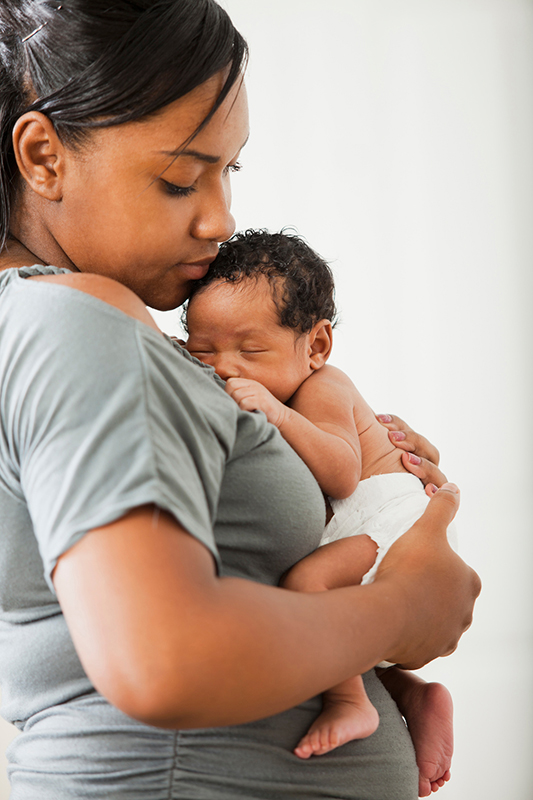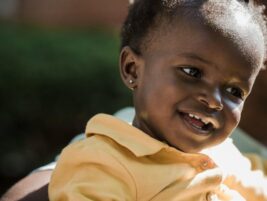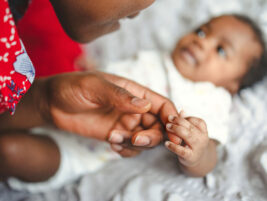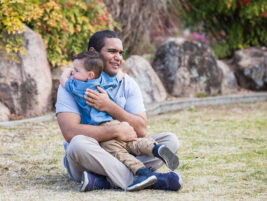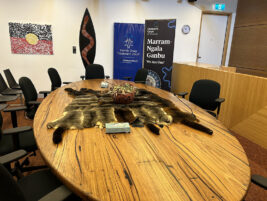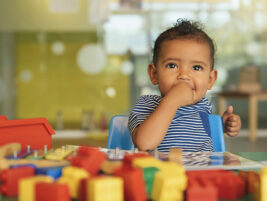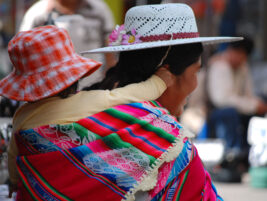This brief paper provides WAIMH members and WAIMH affiliate members with some organizational background to the current initiatives within WAIMH that are being made in response to infants in global crises situations.
Background
In 2012, WAIMH held its first conference ever in Africa. While Cape Town is by no means a conflict city (rather it is a prime tourist destination), it is situated in South Africa. A complicated country with much to be proud of, but also much to be ashamed of. While there were initial hesitations in hosting a world congress in a place far away from the Global North – the zone of comfort for WAIMH – the Board at the time took the brave decision and did so. It entered an unknown space with many uncertainties, but it worked out and turned out to be a memorable Congress.
The following WAIMH 2016 Conference was planned to be held in Israel, in Tel Aviv. It was Miri Keren, the then WAIMH President’s wish to hold it jointly with Palestinian colleagues – a wonderful, courageous wish. This was unfortunately not to be, as a disastrous war broke out soon in 2015, which made a conference in Tel Aviv impossible. It was thus decided to transfer the 2016 Conference to Prague. The theme of that Conference was Infant Mental Health in a rapidly changing world: Conflict, adversity, and resilience.
What was so remarkable about that Conference was that Israeli and Palestinian colleagues presented together in moving presentations. The joint Hebrew-Arabic translation of Alicia Liebermann’s book on traumatized children is a remarkable achievement and a testimony to the painstaking work done by Dr Keren and her Palestinian colleague, Dr Abdallah.
In 2018 at the WAIMH Congress in Rome, we were also made very aware of the many challenges faced by infants and their families by Erum Mariam who spoke about the Rohingya refugee camp in Bangladesh. Hisako Watanabe’s inspirational presentations at that and other WAIMH Congresses had also sensitized us to trauma, induced by environmental disasters.
While we were still thinking about how to practically be of support to colleagues like Erum Mariam, the war in Ukraine broke out and that brought new urgency for us to address this topic. With the help of Tessa Baradon, we established links with Ukraine colleagues – Sasha Mirza and others who are there. We held a mini-symposium one Saturday morning in July 2022. Miri Keren and Hisako Watanabe gave presentations, and we then opened it up to the other participants.
The discussions we had with the Ukraine colleagues at that mini-symposium made it clear that there is a great awareness and knowledge of the importance of mental health for babies, toddlers, young children, and their parents and caregivers. As one of the colleagues said: once one “gets it”, it is impossible not to continue – by that she meant, once one understands that the baby is a person, with his/her subjectivity and in a relationship with the caregiver, there is no turning back from the obligation of having to protect and facilitate these unique human qualities.
The collaboration with WAIMH was very much appreciated and WAIMH in turn is pleased and willing to facilitate cooperation and give input when requested.
Follow-up symposia could not be held as planned, due to the increasing bombardment of Ukraine which resulted in the destruction of infrastructure, such as electricity and internet connectivity.
The focus was on global crises – because no matter whether it’s an earthquake, a tsunami or human-made warfare, the effects on young children and their families are the same. We as WAIMH need to be able to respond to these situations. We do not have funds, but we do have human emotional capital – and perhaps that could be worth more than money.
During this time, WAIMH also set up a special page on the WAIMH website, dedicated to providing resources on Infants in Crises.
Bringing Infants in Crises into closer view within WAIMH at the WAIMH Congress in Dublin, 2023
At the WAIMH Congress in Dublin on 18th July 2023, we subsequently held a Forum discussion. To get the discussion going we had asked a few colleagues to present us their thoughts.
Miri Keren and David Oppenheim focused on adverse childhood experiences and toxic stress related to physical, sexual, and emotional abuse and neglect. The Infants in War document was discussed. Hisako Watanabe reminded us of the catastrophes that befell Japan and described how the mind can stop thinking during such crises. She focused on creating spaces where children can play, enjoy, and laugh. Tessa Baradon argued that WAIMH could bring together enforced silos between groups and disciplines so that together we could support colleagues in crisis areas who need support.
A lively discussion followed, and these were some of the main points that came out of these discussions.
- The development of a universal guide for infants, toddlers and their families who are in crisis situations.
- To have emergency ‘debriefing sessions’ available online, but live, in the event of a crisis occurring.
- Creating a supervision and peer support system online that meets at regular or pre-determined intervals.
- Meeting with humanitarian global organizations to see whether we could offer our support.
WAIMH Global Crises Working Group
Following the Dublin Congress, a database of WAIMH members who wished to be involved in the Global Crises working group was created. And while we were still thinking about the possibility of webinars, October 7th came upon us; The Hamas attack in Israel, that precipitated a devastating crisis on all fronts.
Immediately we felt ready to ‘do’ something, as what was happening to infants and young children was unbearable to watch and think about. It was thought best to offer direct collegial help in times of crisis.
Members, who were on the database, offered to be available on standby for any emergency debriefing session that might be asked for. It was made known on the WAIMH website that any person or group who needed a reflective, thinking space could contact the WAIMH Office and then I would find the appropriate colleague to be available.
The response from the WAIMH Global Crises group was overwhelmingly positive. We have now 29 members from many parts of the world and with various language proficiencies – including Turkish, Arabic, French, Polish, Japanese, Hungarian, Estonian, Afrikaans, and Hebrew – who are available and ready to be online with whoever might need them.
Current WAIMH Initiatives: Infants in Crises
Getting our WAIMH members on board was the first and probably easiest step. The next one is more challenging and revolves around the implementation of providing input in crisis situations.
To this end and moving forward, WAIMH is adopting a four-pronged approach:
- To work with our Affiliates and explore with WAIMH members what could be done in the regions where they live and work. Sharing information about this could happen via brief letters or reports published in Perspectives – to offer a space in which to exchange ideas and information.
- Aligned with WAIMH members and WAIMH affiliate engagement, we will meet at the WAIMH Interim Tampere Conference so that we can share experiences and knowledge.
- A WAIMH Global Crises Working Group discussion paper on colleague-to-colleague support will be made available to all WAIMH members and WAIMH affiliate members.
- At the same time, we will work towards WAIMH becoming a UN/WHO collaborator. This is a long-term project and will take time and effort, but we are in the fortunate position of being able to consult with colleagues who are familiar with the inner workings of these global organizations.
As we continue to move forward, WAIMH will make use of all the primary communication channels to update WAIMH members and WAIMH Affiliate members. In addition to updating you, we will also take every opportunity to invite your participation and input into these evolving initiatives.
So, keep an eye out on the WAIMH website, especially the Infants in Crises webpage, WAIMH social media channels, and the WAIMH Perspectives webpage.
Furthermore, as a member of a WAIMH Affiliate, please feel free to share any expertise that you have in this area with your Affiliate, who in turn will bring affiliate expertise into the combined efforts of the WAIMH Affiliate Council. The WAIMH Affiliates Council is a central part of WAIMH and pivotal in bringing the voice of members to the WAIMH Executive Council. The voice and expertise of Affiliates matter and significantly inform WAIMH leadership decision-making.
Authors
Astrid Berg,
WAIMH President,
South Africa


